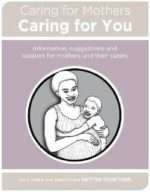Healthy Pregnancy
Visit an Antenatal Clinic or MOU (Midwife Obstetric Unit) before you are 3 months pregnant.
• ‘BOOKING means that it is your first visit to the antenatal clinic or MOU.
• You should book as early as possible in your pregnancy – the earlier the better, but definitely before 3 months (12 weeks).
• Problems such as diabetes and high blood pressure can be picked up and treated early on.
• Staff will assist you to prepare for a healthy pregnancy and safe delivery.
What happens when you book?
• You will be asked about your full health history.
• You will undergo a physical examination.
• Routine blood tests will be done.
• Your blood pressure and urine will be checked.
• You will be offered an HIV test. If you are positive, you will be offered ARV medication to protect your baby against HIV and keep yourself as healthy as possible.
• Sometimes a scan of the baby will be done.
• You may be given important medication, e.g. iron tablets (Keep away from children in the home).
• Your baby’s growth and heartbeat will be checked at each visit.
• If any problems are noted, you will be referred to receive specialised care.
Keep your Maternal Case Book with you at all times
• You will be given a personal Maternal Case Book in which all this information will be recorded.
• You will receive dates for follow-up visits to monitor your health and the growth of your unborn baby.
Health workers care about your health.
They have practical advice to give.
How can you protect your health and the health of your baby?
• Keep all your appointments – each one is important.
• Make sure that you get enough rest and sleep.
• Do some regular, mild excercise to keep fit (e.g. a brisk walk), for thirty minutes, five times per week.
• If HIV positive, take your ARV medication every day and continue after pregnancy and breastfeeding for your own health.
Try to eat healthy meals
• Eat a variety of fruit and vegetables (at least five half-a-cup portions each day)
• Include chicken/fish/meat/eggs/milk in your daily diet.
• Do not add too much salt when cooking or to your plate of food.
• Drink plenty of clean water (6 -8 glasses per day).
• Eat whole-grain foods such as brown bread, dried beans and lentils.
What should you avoid?
• Smoking and places where others are smoking
• Alcohol
• Artificial sweetners
• Illegal drugs, e.g. dagga and tik
• Medicines that have not been given to you by the doctor or nurse
• Home or herbal remedies
• Excessive exercise or heavy physical work
Remember:
• Your baby gets everything that you eat, drink and smoke.
• If you are well, you can continue working as long as your pregnancy is healthy.
• PRACTISE SAFER SEX whether you are HIV positive or HIV negative!
• Use a condom every time you have sex to prevent any new or recurring sexually transmitted infections including HIV.
• Discuss breastfeeding with the health staff.
• Plan to use family planning from the birth of the baby. There are several different options. You can choose the one that suits you best.
For most women pregnancy is a healthy, uncomplicated time of growing a baby until he or she is ready to be born.
However there may sometimes be problems, so, IF YOU EXPERIENCE ANY OF THESE SIGNS OR SYMPTOMS, visit the antenatal clinic or MOU as soon as you can:
• Itching or bad-smelling vaginal discharge or any pimples
• Bladder pain or burning urine
• High fevers
• Severe heartburn
• Swollen face and hands
• Constipation
• Shortness of breath
If you are HIV positive
• Take your ARV medication every day during pregnancy and breastfeeding to protect your baby from HIV. Continue taking your ARV medication for life, for your own health.
For your own and your baby’s health and safety immediately go to the MOU or hospital if:
• You vomit a lot.
• You have a severe headache with flickering lights in front of your eyes.
• You have vaginal bleeding.
• You feel the baby moving less or not at all.
• Your water breaks early before your due date.
• You get any strong labour pains.
Mild painless contractions can occur early in pregnancy as your womb prepares for labour. This is normal.
Always carry your Maternal Case Book with you
• Discuss your birth plan with the nursing staff.
• Feel free to ask questions.
• You may bring your partner or a companion to be with you for the birth to the birthing unit.
• Do not go to the antenatal clinic when in labour.
• Deliver your baby at a MOU or hospital.


